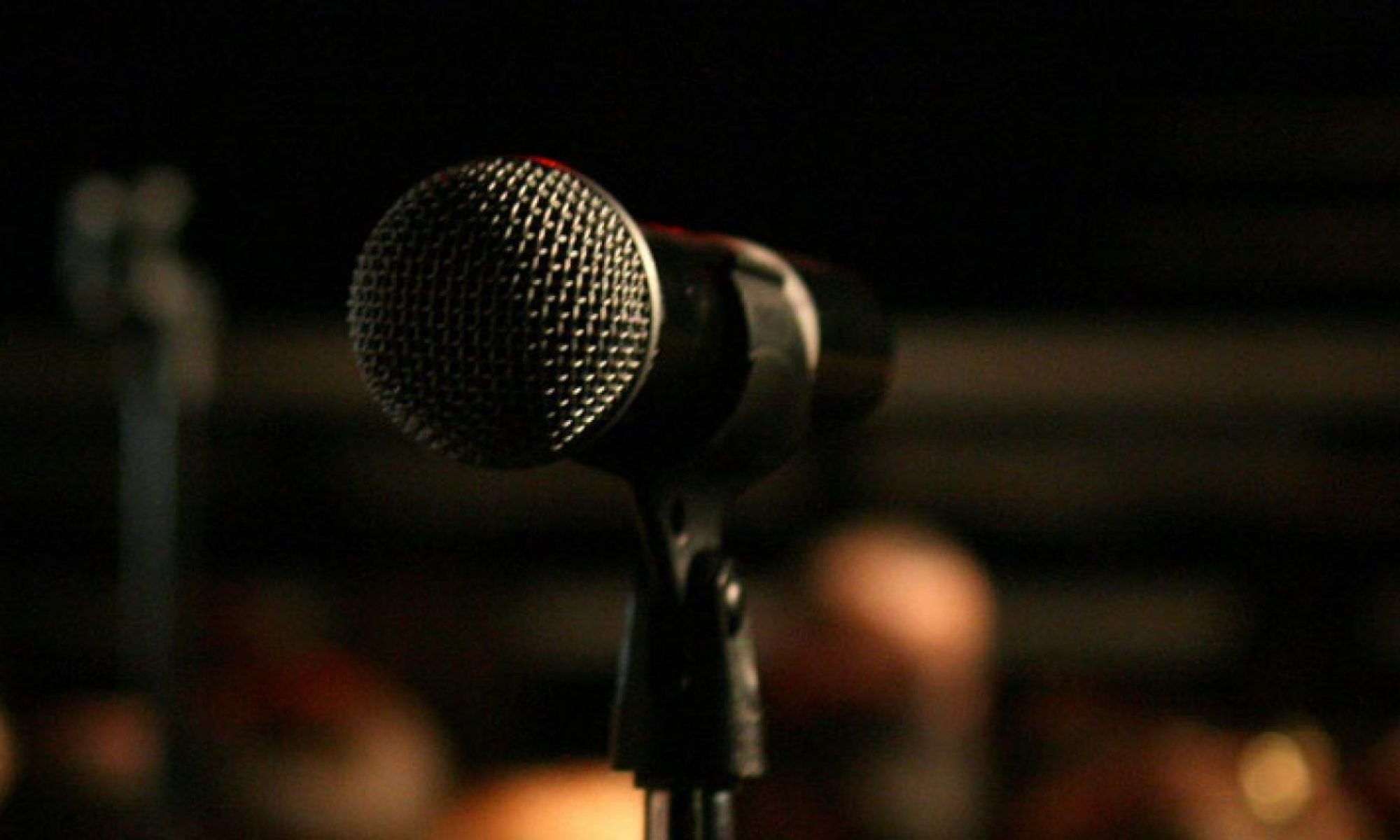It seems simple to “just go up there and talk into the mic.” But properly talking into the mic is more complex than you might think.
Here are the main factors to keep in mind to look and sound smooth during your stand-up comedy performance:
Entering the stage
- Smile and make eye contact with the audience while approaching the stage.
As soon as the emcee says your name, people start looking at you and making judgements. So if you’re stone-faced and focused on getting to the microphone instead of taking in the audience, they will feel shut out. - Start talking right away.
You want to start talking as the applause is dying down but before the room goes silent. That will feel awkward. So don’t wait until you’ve pulled the mic out, put it behind you and then made eye contact. Ideally talk for 5-20 seconds first, get a laugh, then pull the mic out of the stand (if that’s what you’re gonna do).
Decide if you’re keeping the microphone in the mic stand
There’s no “correct” answer – it’s a matter of preference, but be deliberate about it.
If keeping it in the mic stand
- Remember righty tighty, lefty loosey.
Adjust the mic stand to your height, don’t contort your body into weird shapes to fit the existing mic stand’s height. - Use both hands for emphasis, and minimize the amount of time you’re holding the mic stand.
If taking the microphone out of the mic stand
- Look at the audience while taking the mic out of the mic stand. You don’t have to stare at the stand. Believe in yourself that you know how to take out a mic. Or better yet – practice it in advance.
- Pick up the mic stand by the middle.
You want your hand where it’s thicker and the two pieces connect. Do not hold it higher, as that’s how mic stands tend to fall apart. - Make sure to move the mic stand behind you.
Don’t leave it in front of you as that creates a psychological barrier with the audience
The right (and wrong) way to talk into the mic
- The microphone should be at a forty-five-degree angle to you. Don’t put it directly below your chin on a ninety-degree angle or horizontally on a hundred-eighty-degree angle.
- Make sure you hear yourself amplified loud, but not so loud that it hurts the audience’s ears.
- Move mic closer when whispering, pull mic all the way away when screaming.
- Don’t cup the top of the microphone like a rapper, it will create bad vocal distortion.
- Don’t play with the wire at the bottom of the microphone, bad things will happen.
- Don’t nod too much, makes you seem nervous.
- Don’t play with the mic cord, it’s distracting and makes you seem nervous.
- Talk slower than you think you should
Where To Look
- If you’re doing crowd work to someone specific, look at them. Otherwise:
- You should look 2/3rds of the way into the audience. So if the venue goes 10 rows back, look into the eyes of the people in the 7th row.
- Don’t look all the way to the left or all the way to the right of the audience, as this makes the people on the other end feel left out. Only look 2/3rds of the way to the left or right. So if the room is 20 seats wide, ignore the last 4 seats in each direction.
Exiting the stage
- If you’ve taken the mic out of the mic stand, put it back in as you’re starting your last joke.
- Don’t wait after saying, “thank you, good night,” to turn around, find the mic stand and start putting it back in as the emcee is approaching the stage. This looks awkward.
- If you’ve forgotten to put the mic back in the mic stand, just hand the microphone to the host and let them reset the mic stand.
- Smile and take in your applause. Wait in the center of the stage until the emcee has returned and shaken your hand. Then leave. Don’t run off stage until the emcee is on stage.

